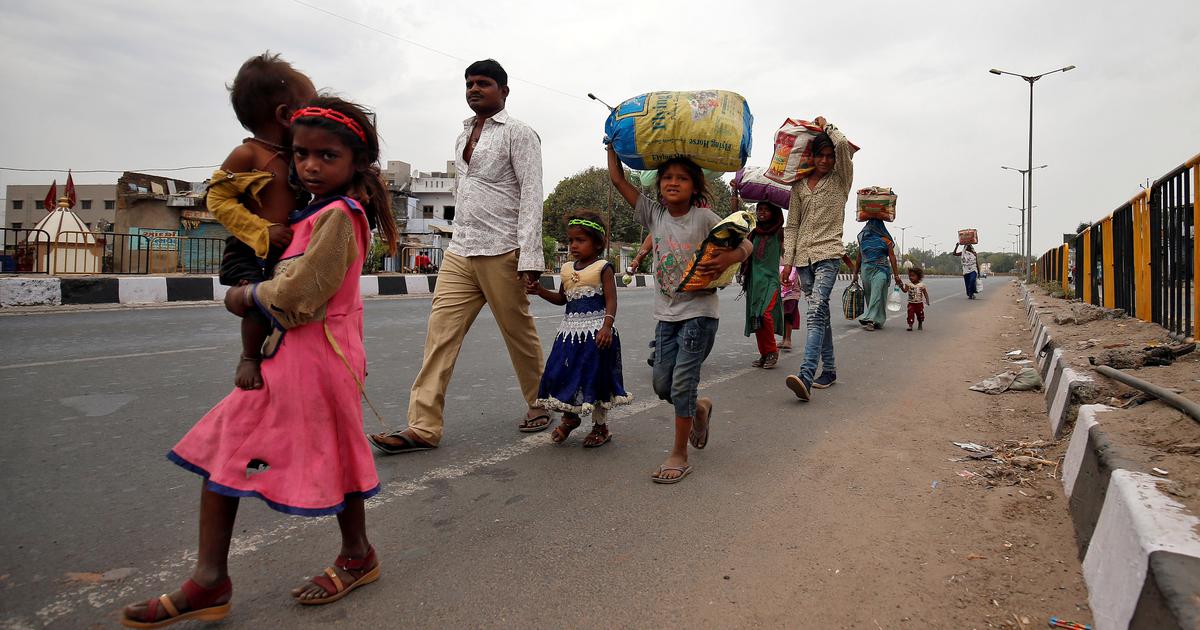Image by Amit Dave/Reuters
“Hunger will kill us before coronavirus does.”
This sentiment, echoed by millions of daily-wage migrant workers in India, is at the forefront of a humanitarian crisis that is devastating India’s poor.
An Unprecedented Lockdown
The COVID-19 crisis is not only a health and a humanitarian emergency, but also a development emergency that is disproportionately affecting the developing world. In India, where I am from, the pandemic has revealed unfathomable social and economic inequalities, as well as a distressing lack of empathy from privileged members of the population. The country announced what is now the world’s longest and strictest lockdown on March 24, with less than a four-hour notice. While a timely lockdown has allowed the country of 1.3 billion to fare relatively well in terms of COVID 19 cases and deaths, it has been implemented with an utter disregard for the informal workers that form the backbone of the Indian economy. India has over a 100 million migrant workers – workers who migrate from impoverished villages to big cities to find employment as daily-wage construction workers, domestic helpers and street vendors. In the wake of a sudden and sweeping lockdown, these workers found themselves without employment, food and shelter (which is commonly provided by employers). With trains and buses shut down across the country, these workers had no way to get home, where they could rely on extended family and their communities for food and shelter.
The Deadly Exodus
Desperate to get home, thousands of migrant workers set out on foot, undertaking lethal journeys of hundreds of miles with their pregnant wives and children in tow. Over the past two months, I have woken up to heart-wrenching news of their deaths and suffering – 16 migrants workers were killed by a train as they fell asleep on the tracks out of exhaustion, a pregnant woman gave birth on the side of a road and walked a 100 miles after delivering her baby, workers dying from sheer exhaustion. In May alone, over 200 migrant workers were killed because of accidents or exhaustion during their journeys home.
In stark contrast to the apathy being shown to the destitute, rich Indians are being repatriated from all over the world, despite there being a blanket ban on all international flights. While the workers were dying in want of a bus or train back home, the government executed the Vande Bharat mission in which they organized flights to bring home citizens stranded all over the world. While I believe that citizens stranded abroad are entitled to be able to get home during a crisis, the same empathy and resources should be extended to the poor. Instead, a large part of India’s middle and upper-middle class, which is riding out the lockdown doing yoga and baking bread in their air-conditioned homes, has criticized the migrant worker population for trying to make the journey home, citing concerns about an exodus to the countryside exacerbating the spread of the virus.
Empathy is Key
While the Indian government eventually started operating some special buses and trains for migrant workers, the damage is done. We have treated impoverished workers’ lives as dispensable, as collateral damage of a global crisis, all while watching Netflix and Zooming friends from the safety of our homes. This pandemic is going to leave deep scars long after it is gone, but we cannot let it bring out the worst side of humanity. If we practice empathy and kindness, and community and solidarity in these scary times, we can mitigate, if not undo, the destruction left in the wake of the pandemic.
